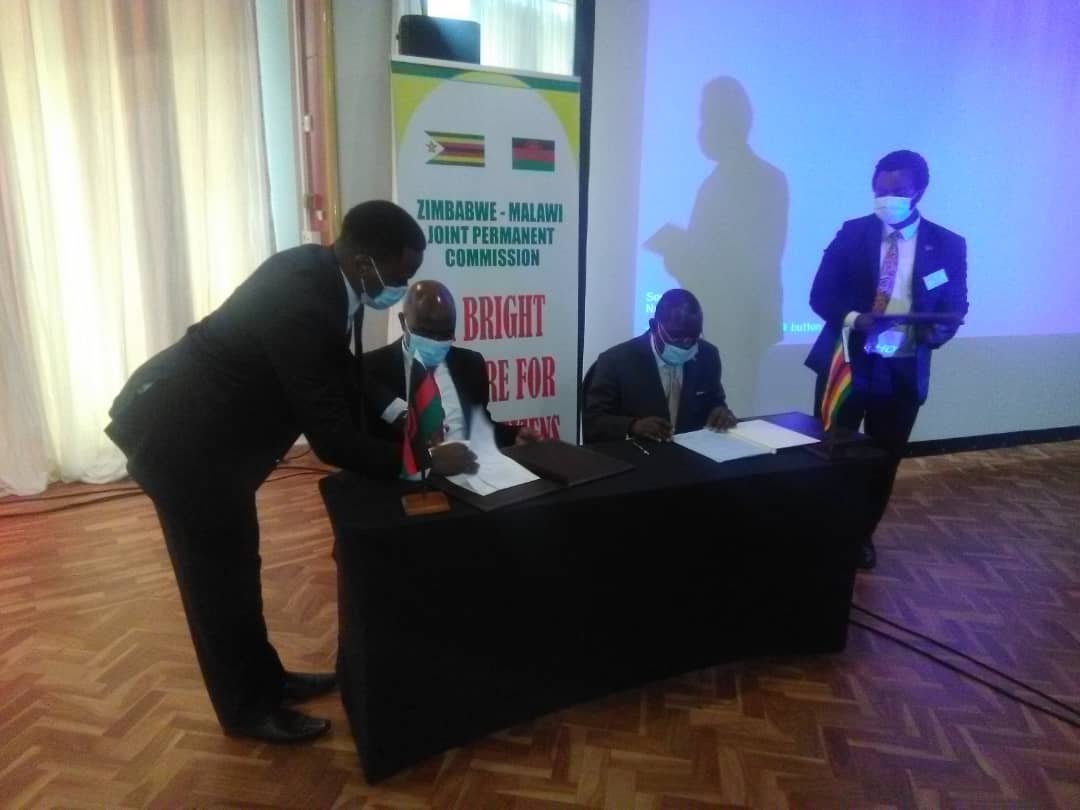Sowell Chikwari (Staff Writer)
Zimbabwe and Malawi have moved to expedite the creation of an enabling environment for increased private sector participation and investment in the two countries to stimulate trade and economic growth.
This comes as trade between the two countries has declined over the years from a total of US$47 million in 2014 to approximately US$24 million in 2019.
Speaking at the just-ended Zimbabwe-Malawi Joint Permanent Commission on Cooperation (JPCC), Foreign Affairs minister Sibusiso Moyo said, “The need to further strengthen our economic cooperation cannot be over-emphasized. Success in this endeavor will not be fully realized without the participation of our private sectors. We, therefore, need to create an enabling environment to encourage the private sectors to invest in our countries and trade among themselves. In that regard, we need to expedite the conclusion of the enabling legal instruments such as the Avoidance of Double Taxation Agreement and the MoU on the Promotion of Small and Medium Enterprises.
“I am in no doubt that the conclusion of these instruments will go a long in increasing the flow of private sector investment between our two countries.”
As the volumes of trade between the two countries have been halved in a space of five years, new information forecast an economic contraction of 4.5% for the SADC region, a rough slide against the expected 1.5% growth projection.
This is despite the fact that intra-Africa trade accounted for about US$ 80 billion in 2019. However, the unimpressive economic performance of most SADC counties has been blamed on the devastating impact of the Covid-19 pandemic on national economies which disrupted trade, tourism and other economic activities as most borders were shut during the initial phase of the outbreak in line with obtaining strict lockdown measures.
As part of enhancing bilateral and trade relations, the 10th session of the JPCC proposed that future sessions involve the business sector through the convening of Business Forums on the sidelines.
The Joint Business Forum has been perceived as an excellent platform for private sector players to meet and network, identify opportunities, and share experiences as well as give feedback as they are the drivers of the two economies.
Speaking at the same forum, Malawi Foreign Affairs minister Eisenhower Nduwa Mkaka highlighted that the deepening of trade and bilateral relations between Zimbabwe and Malawi “is a clear illustration of the cordial countries relations that exist between the two countries, which is based shared vision, mutual trust and advancement of socio-economic development in both countries.”
“Strong bilateral relations are not only necessary for the benefit of our two countries, but they are also building blocks for globalization. It’s through the exchange of experiences at these bilateral frameworks such as JPCC, as well as regional fora that we can effectively participate in global affairs, both economically and politically,” Minister Mkaka added.
Zimbabwe and Malawi in 2015 signed the MoU on Implementation of the Bilateral Preferential Trade Agreement to improve the facilitation of trade between the two countries and to promote cross-border traders, for sustained mutual economic development.






